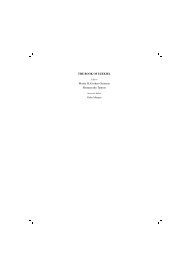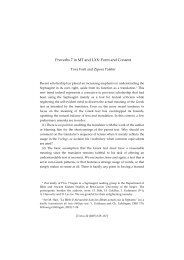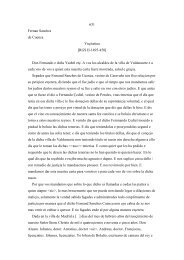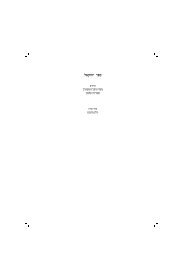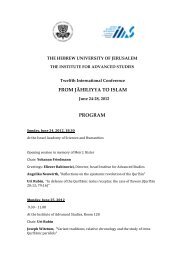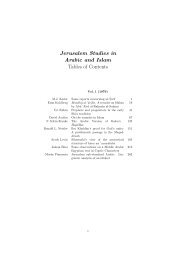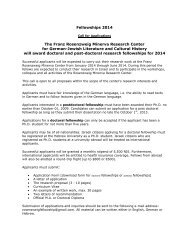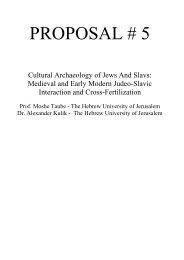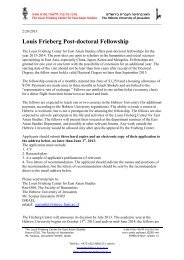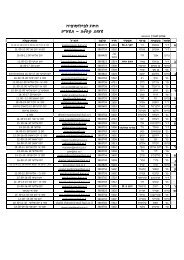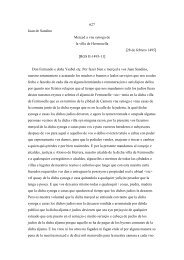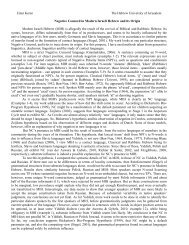Baber Johansen
Baber Johansen
Baber Johansen
Create successful ePaper yourself
Turn your PDF publications into a flip-book with our unique Google optimized e-Paper software.
30<br />
Ibn ÝAqÐl answers this claim of the theologians by invoking the indicants<br />
that the widespread economic and scholarly practice of specialization and<br />
division of labor offers to the authority of the specialist in all fields:<br />
To these [indicants] belongs [the fact] that these [theologians] are<br />
ordinary people as far as Islamic jurisprudence (fiqh) is<br />
concerned, because they do not know the method of independent<br />
judgment (ijtihÁd), and [therefore] their dissent is not taken into<br />
account, much as that of the ordinary person (ÝÁmmÐ).<br />
He explains that this holds true for the relation between specialists and<br />
laymen in all scholarly disciplines:<br />
To these [indicants] belongs [the fact] that we have a consensus<br />
that, in each of these sciences, one does not, if a doubt or a dissent<br />
occurs within them, turn to anyone except the specialists of that<br />
discipline (ilÁ ghayri ahlihÁ). One does not take into account the<br />
statement of a jurist (faqÐh) who has no knowledge of language,<br />
arithmetic, and grammar in anything of this [i.e. concerning these<br />
disciplines] (fÐ shayÞin min dhÁlika). The same holds true for [the<br />
specialists] in estimating the value of commodities (taqwÐm alsilaÝ);<br />
concerning the fixing of a fine [for the value of the<br />
destruction or unlawful appropriation of a merchandise], one turns<br />
to the experts of textiles, and to the merchants in foodstuff for its<br />
appraisal and the experts of its value and similar things. There is<br />
no reasonable aspect for introducing the scholars of [other]<br />
disciplines into the discipline of fiqh. One also does not have<br />
recourse to jurists in the disciplines of other [scholars] as we have<br />
explained. 84<br />
The general principle of an increasing division of labor in society and<br />
scholarship is here mustered to prove the exclusive authority and control<br />
of the jurists and their methods over the field of law. 85 AbÙ IsÎÁq ShÐrÁzÐ,<br />
certainly the most influential ShÁfiÝÐ jurist of the eleventh century, has an



